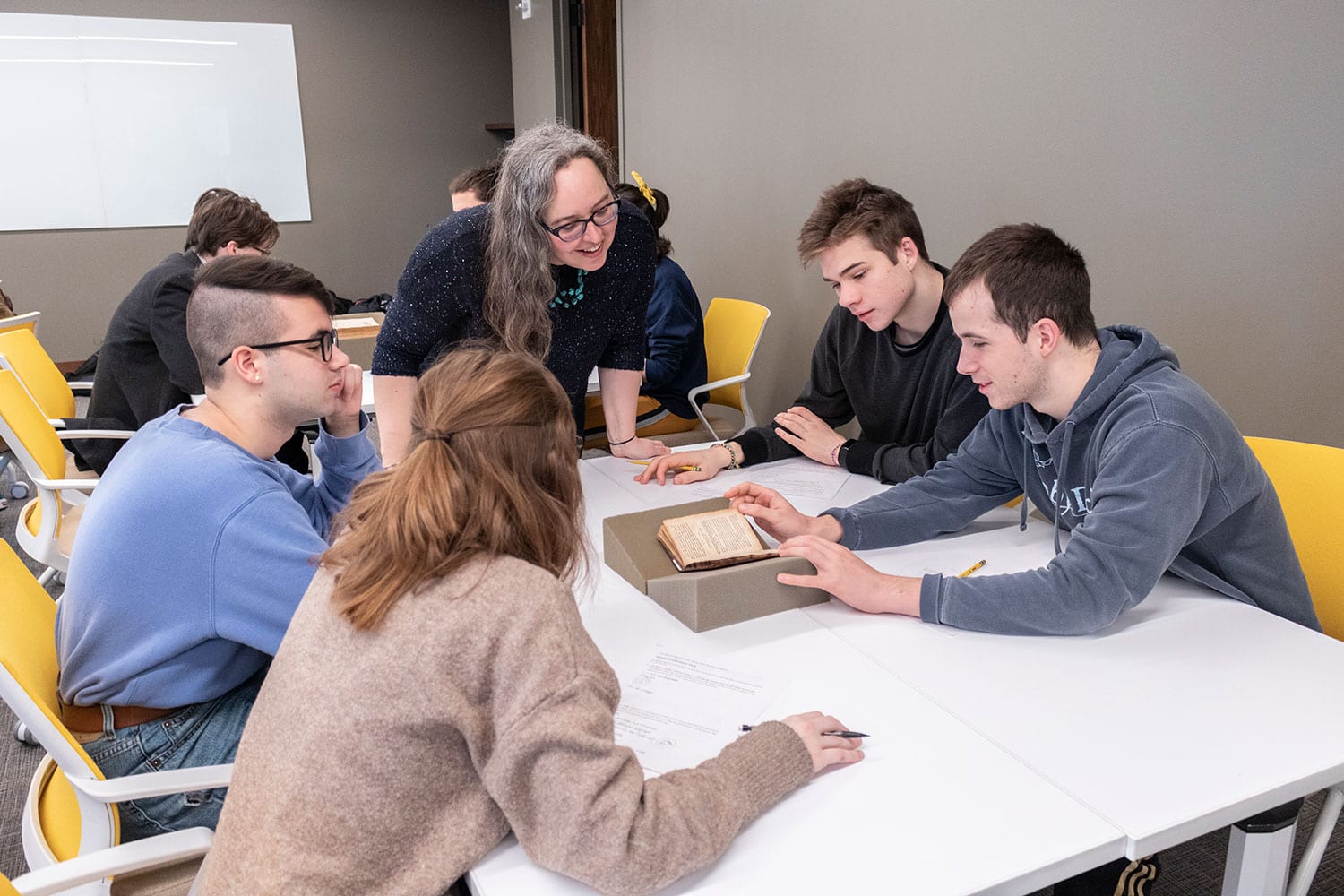Course Title: “Global SF Since 1945”
Taught By: Laurie Ann Levin Professor of Comparative Literature and Professor of English Maud McInerney
Says McInerney:
SF—science fiction, speculative fiction—is the primary allegorical mode of the contemporary world. Stories set in the far future or in alternative presents or pasts permit profound reflections upon and critiques of the world we inhabit today. This course explores the explosion of the genre in the decades since the Second World War and the advent of atomic weapons. We will read a few classics from the ‘50s and ‘60s before turning to stories that engage queer identities, Afrofuturism and African futurism, and the global threat of climate change.
[I wanted to teach this class] because I’m a huge nerd and I’ve been wanting to teach SF for 25 years. I also wanted to teach an English course that would have broad appeal to non-majors. And I wanted to find a way to teach about issues like climate change and evolving technology, both of which I think pose clear threats to the planet we inhabit.
The syllabus includes books by Ray Bradbury, Ursula LeGuin, Samuel Delaney, Octavia Butler, N.K. Jemisen, Kazuo Ishiguro, Haruki Marakami, and Kathryn Davis, as well films including Solaris, Nausicaa of the Valley of the Wind, Snowpiercer, and Blade Runner, which are screened for the class on Sunday afternoons with pizza.
For decades, sci-fi has been looked down upon (unfairly). The fact that a recent Nobel Winner Kazuo Ishiguro has written an SF novel has helped to change opinions on that topic, and critical appreciation of groundbreaking authors of color like Samuel R. Delany and Octavia Butler (and now, N.K. Jemisin) has grown exponentially in the last few years. It’s time to start taking SF seriously.
Learn more about other courses offered by the Department of English.

